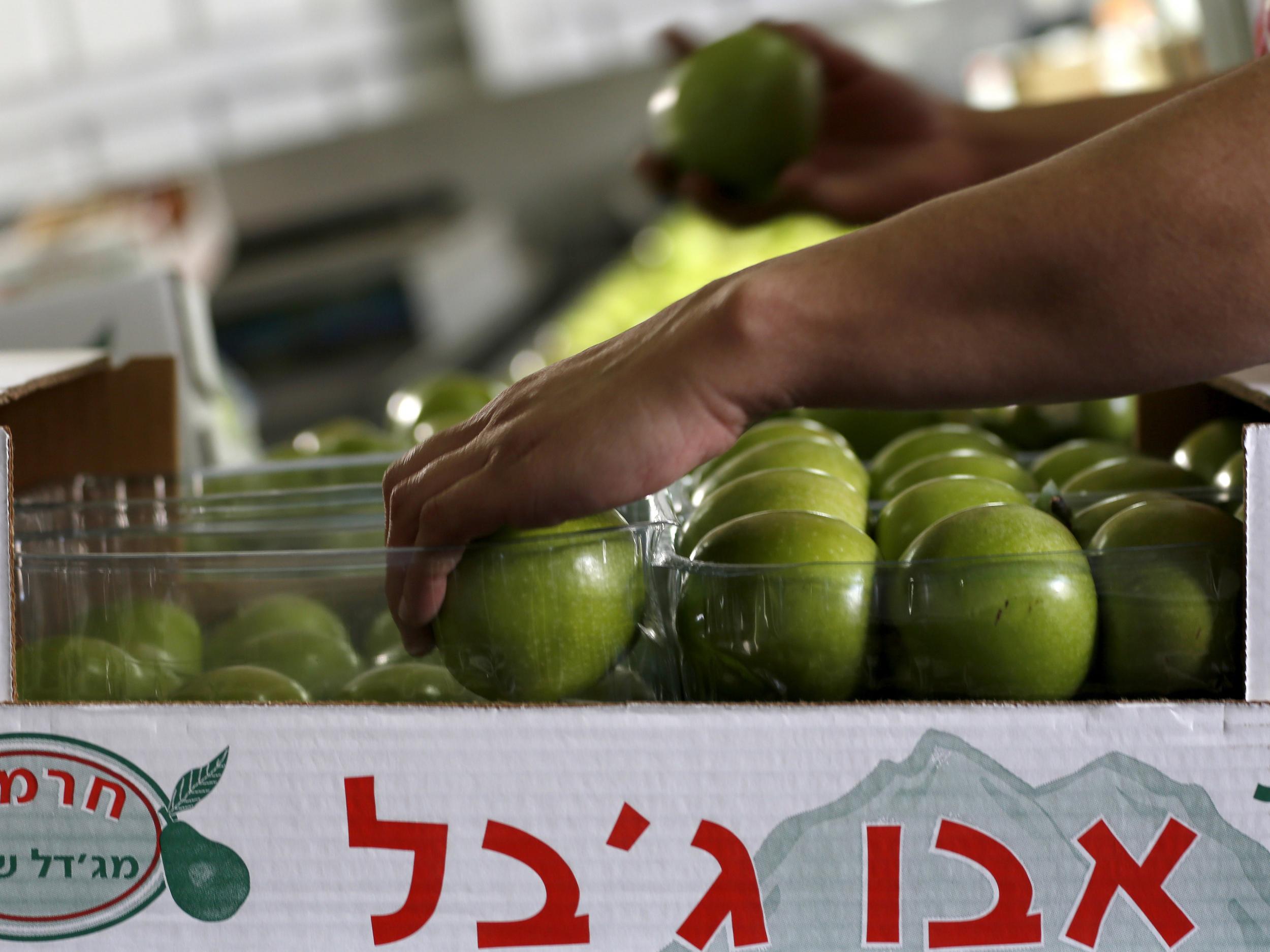France becomes first European country to label items from Israeli settlements
New guidelines say it would be misleading to claim goods from Palestinian occupied territories were produced in Israel

Your support helps us to tell the story
From reproductive rights to climate change to Big Tech, The Independent is on the ground when the story is developing. Whether it's investigating the financials of Elon Musk's pro-Trump PAC or producing our latest documentary, 'The A Word', which shines a light on the American women fighting for reproductive rights, we know how important it is to parse out the facts from the messaging.
At such a critical moment in US history, we need reporters on the ground. Your donation allows us to keep sending journalists to speak to both sides of the story.
The Independent is trusted by Americans across the entire political spectrum. And unlike many other quality news outlets, we choose not to lock Americans out of our reporting and analysis with paywalls. We believe quality journalism should be available to everyone, paid for by those who can afford it.
Your support makes all the difference.France has said goods from the Israeli occupied Palestinian territories must be labelled as such, prompting Israel to accuse the country of aiding a boycott of the Jewish State.
Paris published guidelines on enforcing European Union (EU) regulations on produce from the West Bank, including annexed east Jerusalem, which the international community considers occupied Palestinian land, and the Golan Heights, which Israel seized from Syria in 1967.
The EU ruled that products from Israeli settlements should be clearly labelled a year ago, but France is the first member state to enforce the decision, which sparked a diplomatic crisis with Israel at the time.
An advisory notice on the French Government website said: "Under international law the Golan Heights and the West Bank, including east Jerusalem, are not part of Israel."
It said labelling goods simply as "from the West Bank" or "from Golan Heights" without providing more details is "not acceptable". Instead goods must be clearly marked as coming from an "Israeli settlement," when that is the case, to avoid "the risk of misleading the consumer".
The Israeli Foreign Ministry responded by saying it "regrets that France, which actually has a law against boycotts, is advancing measures that can be interpreted as encouraging radical elements and the movement to boycott Israel".
It accused France of a "double standard" by focusing on Israel and "ignoring the other 200 territorial disputes around the world", the Local reported.
In November 2015, the EU infuriated Israel by adopting a motion declaring that products from settlements would have to be labelled as such across the bloc. The country suspended some co-operation with the union and a minister called the decision "disguised anti-Semitism".
European diplomats admitted in private that the strength of the Israeli response made many member states wary of issuing their own specific guidelines, the Local reported.
Hugh Lovatt, Israel coordinator at the European Council on Foreign Relations think tank, told the news site France was the first member state to act on the EU decision.
Mr Lovatt said France's frustration in recent months at Israel's refusal to attend a Paris-led peace conference, together with Israel's continued expansion of the settlements, could have motivated the move.
He added there had also been concerted action by French civil society and lawmakers.
"The question is whether other member states follow the French example," he said. "EU states tend to act like a herd so yesterday's move may lead others to follow suit."
The guidelines come after Paris attempted to organise an international peace conference, in a bid to kickstart the Israeli-Palestinian peace process, which stalled in early 2014.
Israel refused to take part, saying an agreement should only be negotiated bilaterally between the two sides.
Subscribe to Independent Premium to bookmark this article
Want to bookmark your favourite articles and stories to read or reference later? Start your Independent Premium subscription today.
Join our commenting forum
Join thought-provoking conversations, follow other Independent readers and see their replies
Comments